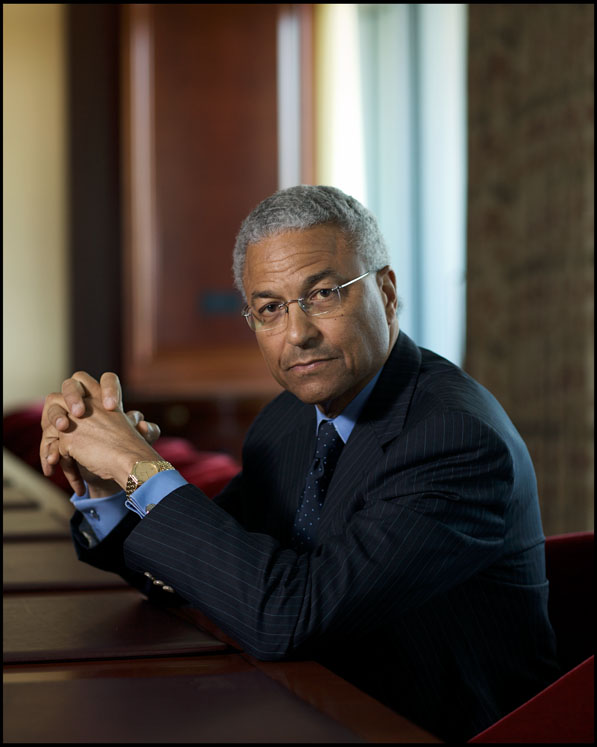
When Peter Beshar was offered the general counsel position at Marsh & McLennan Companies, he had a lot to ponder. “I had to ask myself if I was going to stay on the path that I envisioned or if I was going to do something that was quite different and extraordinarily challenging,” he recalls. Now, as executive vice president and general counsel of Marsh & McLennan, Peter Beshar leads a global team of lawyers within a business that provides advice and solutions to more than 80 percent of Fortune 500 Companies. Mr. Beshar recently sat down with Profile to discuss his career moves, how best to manage an effective team, and conducting business in a transparent and ethical manner.
I grew up in New York City and, after going to Yale for college, spent two years working in Argentina, Colombia, and Mexico. Last year, I had the great privilege to return to those countries, speaking at town halls with our employees and reconnecting with many of the people that I encountered 25 years ago—it was quite a thrill.
I graduated from Harvard Law in 1989, then worked in the government for a number of years. I served as the special assistant to Cyrus Vance, our former Secretary of State, who was appointed by the UN Secretary General at the time, Boutros Boutros-Ghali. Our efforts centered on trying to bring peace to former Yugoslavia, and Bosnia in particular. When I returned to the United States, I worked for the attorney general’s office in New York in 1994 and served as the head of an illegal-firearms task force.
I spent a decade working for the law firm Gibson Dunn & Crutcher and became a partner in 1999. At that time, I thought I would likely spend the bulk of my career there. As the cochair of the securities litigation group, I helped companies that were going through regulatory and litigation crises. In 2004, the new management team at Marsh & McLennan reached out to me. I thought I was going to pitch to represent Marsh & McLennan as an outside lawyer, but it turned into something very different than what I had anticipated. The CEO indicated that he wanted me to become the general counsel of the company. And to demonstrate that I had the mind-set to tackle a challenge, he only gave me a few days to decide whether to accept the job.
I had to ask myself if I was going to stay on the path that I envisioned or if I was going to do something that was quite different and extraordinarily challenging. I decided to accept the position because I felt I could make a meaningful contribution to help turn the company around. I am thrilled that I did so. Marsh & McLennan is an iconic company with a storied, 130-year history. Our founder, Henry Marsh, shaped the insurance-brokerage business and was a pioneer in developing the concept of risk management. Our consulting businesses, Mercer and Oliver Wyman, are on the cutting edge of crucial issues like retirement security, health care, and talent management.
As the general counsel of a multinational company, it can be difficult to navigate through all the different stakeholders. To be sure, shareholders are a critical constituency. Yet, many other stakeholders have a voice, as they should, in our business—employees, rating agencies, lenders, bond holders, regulators, and of course clients. It is important to develop a process to engage, in a sustained rather than episodic way, with these constituencies. Over the past two years, Marsh & McLennan has improved its financial performance. Our focus has turned to investments that we can make in our people and new products and businesses that we can acquire to accelerate our growth in strategic areas.
The assets of our corporation are our people. They are tasked with giving advice and offering solutions. That is the role we play, and the more creative, innovative, and diligent we can be, the more successful our clients will be. In my experience at a multinational corporation, individuals can accomplish precious little. You need to build a great team, and you need to attract first-class talent. One of my greatest sources of satisfaction is the quality and depth of the team that exists within the legal department. We have 135 lawyers in the 100 countries around the world where we operate.
There has been a proliferation of new laws and regulations, not simply in the United States, but across the globe. A crucial task for the general counsel and the entire legal department is to make sure that the company complies with these new laws. The Dodd-Frank Financial Reform Act, the UK Bribery Act, the Affordable Care Act, and the America Invents Act—all of which have been adopted in the past two years—alone span more than 5,000 pages in total. Our team also needs to anticipate what is on the horizon, to identify emerging trends in the regulatory or legislative world. We have tried to develop an early warning system to keep pace with the expansion of the regulatory framework.
As we grapple with complex business challenges, I try to engage with our business leaders around two basic questions: is it legal and is it right? I have enormous respect for our business leaders—their willingness to embrace risk, their ability to lead teams of thousands of people. When we confront judgment calls that inevitably arise, we try to ask ourselves if we are complying with the letter of the law and also the spirit of the law. That is the kind of culture that I believe a sophisticated organization should try to cultivate.

